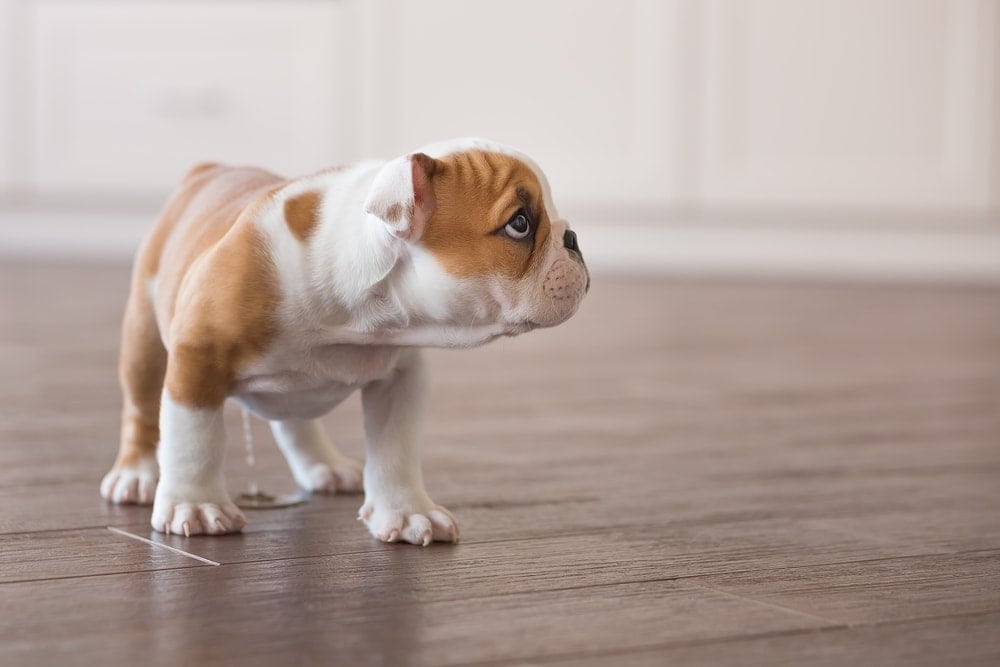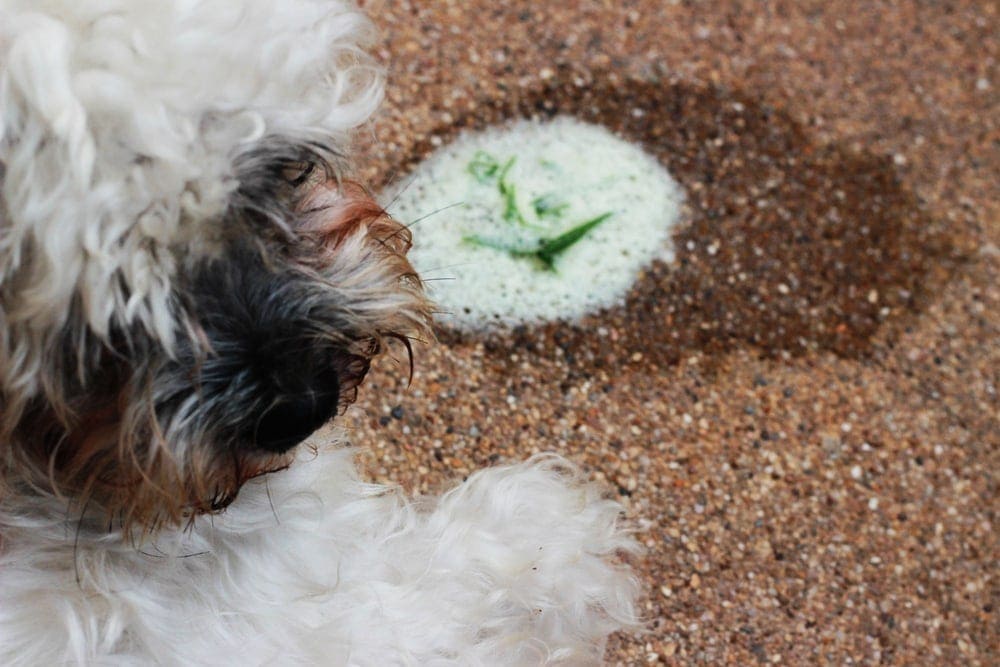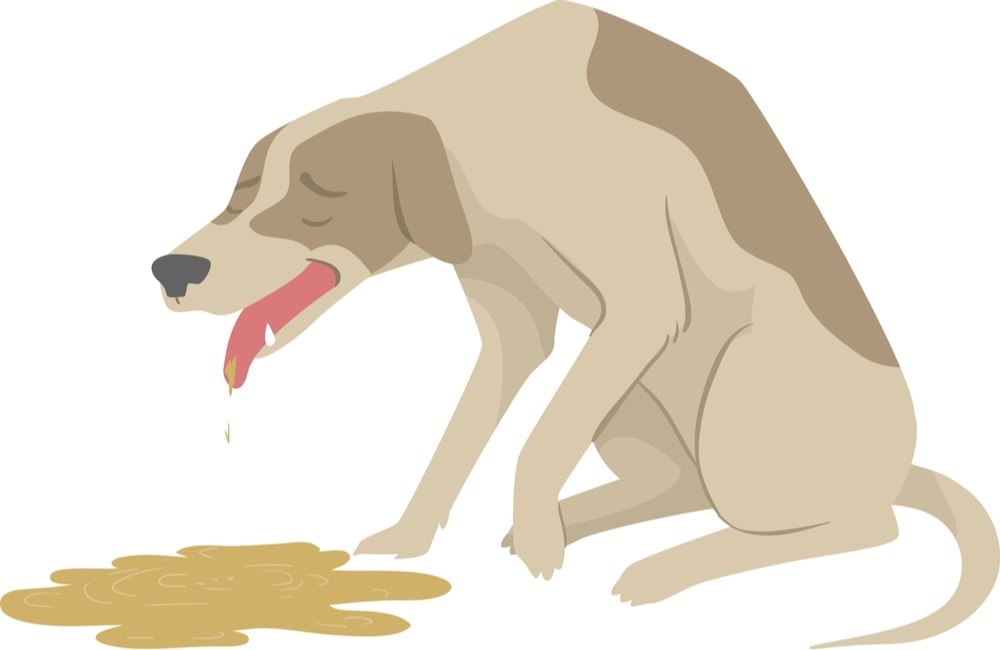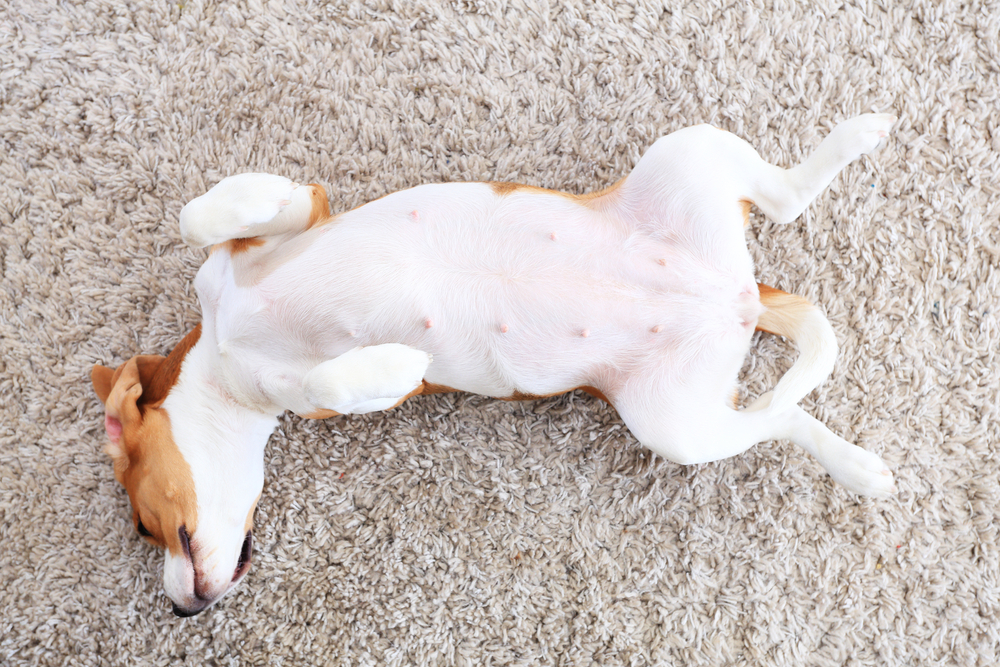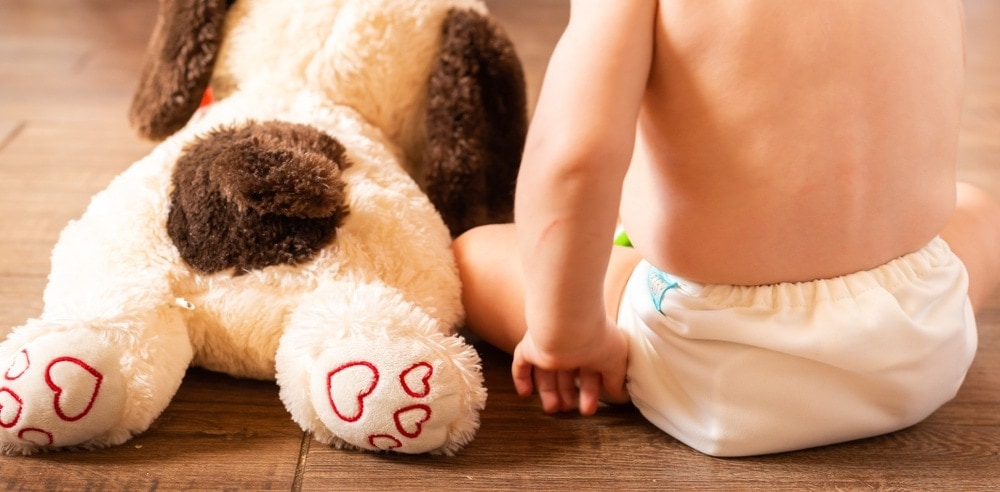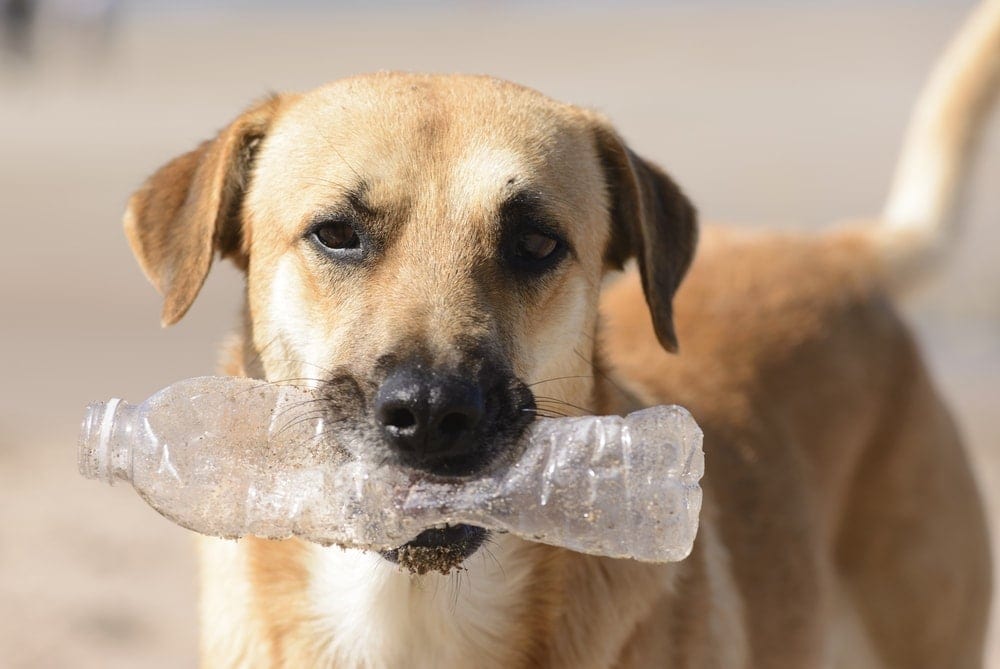If your dog is constantly peeing, you’ll need to get down to the bottom of it.
There are multiple explanations for this behavior, so you’ll want to be aware of all the possibilities.
This could be a sign of a serious health problem with your dog.
What is Considered Normal Urination?
The average dog urinates every 4 to 6 hours, but there is some variation depending on the breed and other factors. The age of your dog is also something to consider. Puppies need to be let outside to urinate at least every couple of hours. This can last anywhere from five to six months of age.
Some older dogs that are on certain medications will also need to urinate more than normal, so you’ll want to keep that in mind. If your dog is currently on any medications, you should check to see if this is a potential side effect.
Reasons Why Your Dog is Peeing so much
Next we will explore some of the more common reasons for a dog urinating more than is typically considered normal.
1. They are too hot
It’s also possible that your dog is urinating frequently because their body is overheating. This is particularly common in the summer months when temperatures rise, especially during the afternoon.
If you notice your dog panting a lot on a hot summer day, there is a good chance that it they are overheating. You’ll need to be very diligent when it comes to keeping your dog’s water bowl filled. This will ensure that your dog does not become dehydrated, which can cause serious issues over a fairly short period of time.
2. Old Age
As we mentioned above, the age of a dog can have a big impact on how often they need to urinate. A lot of older dogs naturally develop bladder issues, which causes them to urinate more frequently than before. This isn’t necessarily a sign that something is wrong with your pet.

3. They are Marking Their Territory
If your dog is urinating frequently inside, it could be due to their natural territorial instincts. You can tell the difference by simply observing how they are urinating. If they pee in short bursts, it is probably because they are marking their territory.
The best way to stop your dog from constantly peeing inside due to territorial behavior is to have them spayed or neutered. This is pretty much guaranteed to resolve the issue, and there are a lot of other good reasons to have this done. This behavior is common when a new dog is brought home. It could be your original dog’s way of letting the new dog know that it is their territory.
4. Incontinence
Some dogs become incontinent due to old age (see above), while others develop this particular issue after being spayed. While this is a fairly uncommon side effect of spaying, it is still a possibility to consider. If your dog started peeing inside on a regular basis shortly after being spayed, this is most likely the case. You will definitely want to see your veterinarian so you can get recommendations for treatment.
5. Urinary Tract Infection
A urinary tract infection could also be causing your dog’s frequent urination. Dogs can develop UTIs just like humans, and they can be rather painful for them. While this is certainly not the most serious health issue a dog can develop, it will require treatment.
It is usually caused by bacteria in your dog’s urethra, which is cleared up with simple antibiotics. You can get a prescription from your veterinarian to take care of this infection. It takes 1 to 2 weeks for a canine UTI to clear up completely.
6. Diabetes
Dogs that develop diabetes can also become prone to frequent urination, which is a common symptom of this condition. If your dog has diabetes, it is important that you manage it as effectively as possible with regular insulin injections.
Your veterinarian will be able to test your dog for diabetes by running a number of tests. Increased thirst brought on by diabetes can lead to urinating more often than usual. This is fairly common with older or severely overweight dogs. If you suspect that this is the case, it is important that you take your dog to the vet as soon as possible.
7. Kidney Infection
A kidney infection could also be causing your dog’s frequent urination. This type of infection can become serious very quickly, so you shouldn’t wait to take action. Some of the other symptoms of this type of infection include lack of appetite, blood in urine, and excessive thirst. Your dog might also be uncharacteristically lethargic on a daily basis.
A course of antibiotics should clear up the infection completely. The sooner you get your dog treated, the more likely it will be to make a full recovery without any complications.
8. Kidney Stones
Kidney or even bladder stones could be to blame for your dog’s constant peeing. These stones can be very painful, so it is important that you get your dog treated right away. A veterinarian will be able to help you clear up this problem as efficiently as possible.
Conclusion
- Most adult dogs need to urinate every 4 to 6 hours.
- Puppies (up to six months old) typically need to get out to urinate every couple of hours.
- Sometimes frequent urination could be due to your dog simply getting older.
- If your dog is overheating due to exposure to very warm temperatures, they could start urinating more than usual.
- It’s also possible that your dog is marking their territory, especially if they are peeing in short bursts inside the house. This is common when you bring a new dog home.
- A urinary tract infection can cause frequent urination in dogs as well.
- Frequent urination is a common symptom of diabetes, which is a serious condition that needs immediate treatment.
- Kidney and bladder stones tend to cause an increase in urination.
- If your dog has a kidney infection, they might pee more than normal.
